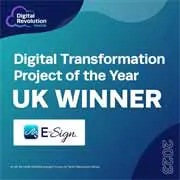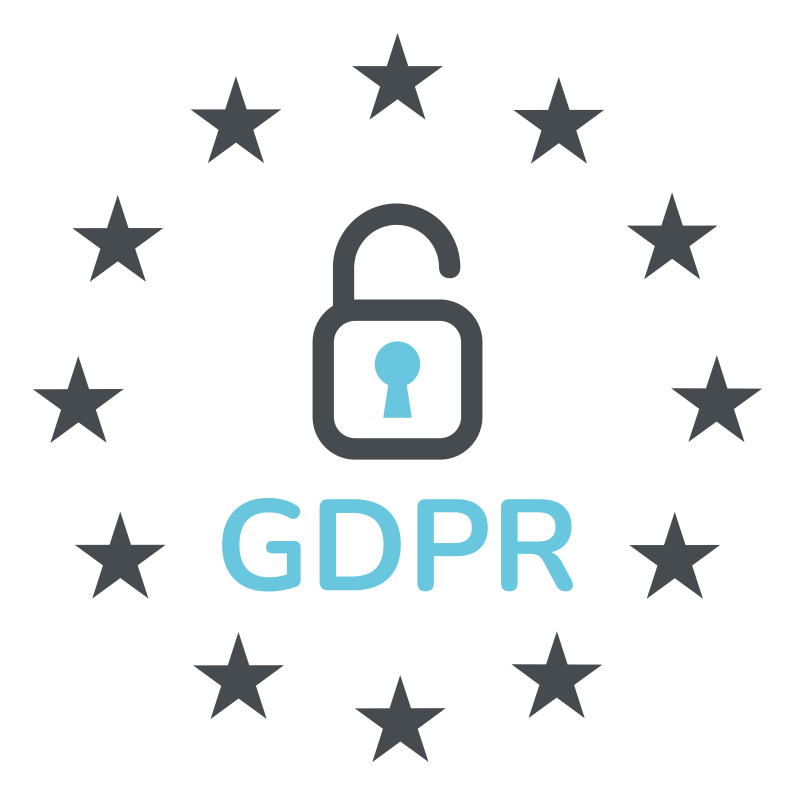What is a Digital Identity Wallet?
Laura Cain
Marketing & Brand Manager
PUBLISHED
9th July, 2024
Identity verification technology has developed significantly over the years with our lives becoming increasingly reliant on digital technologies. Digital identity wallets are the logical next step for simplifying the verification process whilst maximising security. In this guide we’ll be defining what a digital identity wallet is, the benefits of it, and everything else you need to know about it.
What is a Digital Identity Wallet (DIW)?
A digital identity wallet is a software application designed to securely store, manage, and share an individual’s identification data, credentials, and other essential information. Similar to a physical wallet where you might store your driver’s licence, a digital identity wallet holds items like certifications, professional licences, and other data used to verify your identity.
The purpose of a digital identity wallet (DIW) is to enable you to access and share your personal information without the need for physical documents. These digital wallets can take various forms, including browser extensions, mobile apps, or hardware devices. They are useful for verifying your identity when logging into websites or making online transactions. Although digital identity wallets are a relatively new technology, they are gaining popularity in many countries. This is due to their convenience and enhanced security.
What are the Benefits of Digital Identity Wallets?

Enhanced Security
Digital identity wallets offer robust security features, like encryption, in order to protect personal data from cyber threats. Without a high standard of security protocols and systems in place, users would not feel confident trusting their most sensitive information in a digital wallet. So security is extremely important in this emerging technology.
Increased Confidentiality and Integrity of Data
Any piece of data that is added to a digital identity wallet has to be provided by the original source document with proof of origin. This ensures the data is authentic to any entity that it is sent to. Making the process quick and seamless for both the individual confirming their identity and the third party that requires it. Additionally, the wallet allows you to control what information is shared and who it is shared with. Therefore, you can prevent the sharing of any details that are not needed in specific cases, and minimise the risk of identity theft and fraud.
Convenience and Time Savings
Digital identity wallets are very easy to use, individuals can access all their IDs and credentials from one app on their mobile device. This removes the need to manage physical documents and replaces outdated and time consuming manual methods of verifying identity. For example, having to provide key details over the phone, or taking an image of a document and uploading it for the intended recipient.
Improved Accuracy in the Data
Due to the information integrity safeguards and proof of origin processes with digital identity wallets, they can offer assurance that the information relating to the individual is accurate and up to date. Not only that but users themselves will also be able to keep their details up to date, such as their interests and preferences. Which can be collected directly from the wallet and is always within the user’s control.
Reduced costs
Digital wallets can help to reduce the costs that are typically associated with traditional ways of verifying identities. Which can quickly accumulate for larger organisations who need to verify large quantities of identity information on a regular basis.
eIDAS 2.0 and the DIW
The eIDAS (electronic identification, authentication and trust services) regulation was introduced in 2014 as a legal framework for the provision of electronic signatures and other related digital trust services. This enables the secure and efficient use of these solutions for organisations and individuals alike. Whilst eIDAS remains an important regulation for ensuring the safe provision and use of trust services, the digital landscape has advanced substantially since its introduction in 2014, which has led to the development of eIDAS 2.0.
eIDAS 2.0 is intended to reform the original framework in some areas and implement new features including digital identity wallets. The updates to the regulation will introduce DIWs for individuals and organisations to start using in the EU. You can learn more about eIDAS 2.0 and digital identities in our guide ‘eIDAS 2.0 and the impact of digital identities’.
Additionally, the EU has been developing an ambitious initiative called the ‘European Digital Identity’. This will provide wallets for citizens, residents, and businesses who want to confirm their identity or verify data for offline and private services across the EU. Digital wallets will allow people to:
- Exchange and store data provided by governments such as name, nationality, and date of birth.
- Identify themselves both online and offline.
- Confirm the right to reside, work, or study in a specific Member State using relevant credentials.
- Exchange and store details provided by trusted parties.
What Countries are Currently using Digital Identity Wallets?

Several countries have started to implement digital identity wallets over the years. As governments and businesses recognise the benefits of secure and efficient digital identity solutions. Some examples of these countries include:
Norway
Norway introduced a system called BankID, which enables users to access various online services securely and electronically sign documents.
Estonia
Estonia has in fact been a leader in digital identity technology for several years, they introduced a digital ID card system in 2002. Individuals using digital ID cards can use a range of government services online and digitally sign documents.
Singapore
The digital identity system in Singapore is called SingPass and it ensures individuals can sign documents electronically and access several government services that require their identity to be verified.
India
India introduced a digital identity platform known as Aadhaar. Which works by providing each citizen with a unique 12-digit identification number. This is an effective system and allows individuals to easily use the government services they need including financial and social welfare programs.
South Korea
South Korea uses a system called i-PIN for digital identities. It is used for a range of online services including financial and e-commerce services.
Are there any Drawbacks or Challenges to Digital Identity Wallets?
As a fairly new concept for many countries in the EU, digital identity wallets may initially pose some challenges.
Greater risk of profiling
Digital identity wallets naturally carry an individual’s important identification details. As well as other information that could be used to identify them. If the right safeguards are not in place when the system is implemented, parties could combine this data with other information they have already retained on actions performed by the individual. In addition, the wallet can store any type of personal information including details that are particularly sensitive.
This data can encompass various aspects of an individual’s life, such as sexual orientation, health, political opinions, religious beliefs, family life, and finances. With such comprehensive information, there is a potential for exploitation by both public and private sectors. Consequently, individuals using DIWs might be at risk of profiling. If the technology does not adhere to a privacy-by-design and default approach, along with robust security measures. The specific risks of profiling associated with DIWs are further detailed below.
Lack of data minimisation
There is a risk that DIWs will result in abusing identity verification when simple authorisation would be the more appropriate course of action. Certain use cases may require an individual to confirm their identity, with the law providing for these circumstances. In other situations it might only be necessary to demonstrate that the individual has authorisation to access a specific resource. But it should not be regular practice to provide identification data for those purposes.
Unnecessary/ too much disclosure of personal data
The aim of the DIWs is to prevent this from occurring. However, depending on how it is implemented, there is a risk that identity service providers and other relying parties can access more pieces of information within the identity wallet than they are required to. Based on the individual’s consent or other lawful bases. There can be multiple reasons for this, including an inadequate policy, neglecting data minimisation requirements, or design choice.
Conclusion
Digital identity wallets are a beneficial technology that will help to ensure safe and efficient methods of verifying identity. Saving individuals and organisations a significant amount of time. However, it’s important that strict protocols and systems are in place to ensure that the stored data is only being used for its intended purpose. And the risks detailed above are minimised as much as possible.
As an industry leading eSignature and digital document solutions provider, E-Sign understands the importance of efficient and secure electronic services for users and businesses alike. We offer bespoke plans that are designed to meet the specific requirements of every organisation we work with. To find out more about how E-Sign can support your digital transformation journey, contact us today and one of our specialists will be on hand to help. You can also give the platform a try for yourself by registering for our 14-day free trial.
 Facebook
Facebook
 X (Twitter)
X (Twitter)
 LinkedIn
LinkedIn











